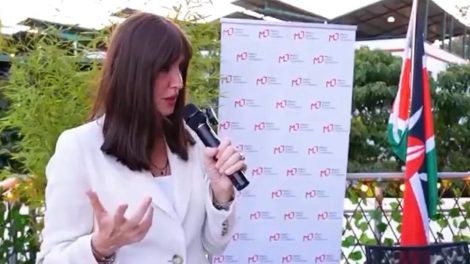Bernini is Beijing-bound. Anna Maria Bernini, Italian Minister of University and Research, is set to open the 12th China-Italy Science, Technology and Innovation Week in the Chinese capital on Tuesday. The annual event is promoted by her ministry and the Chinese Ministry of Science and Technology and is geared towards enhancing national research and innovation systems through academic, scientific and technological exchanges.
- This year’s edition – titled “High-Tech Olympics And High-Quality Development” – will be held on November 28-29 at Beijing’s Shougang Park, with Deputy Minister Zhang Guangjun set to attend the opening ceremony.
Incoming partnership deal. Il Foglio revealed that the two governments will sign an executive protocol with an Italian investment of €1.4 million for the next two years. The initiative was negotiated by Italy’s Ministry of Foreign Affairs and Cooperation (Ambassador Massimo Ambrosetti will sign it on the Italian side) and is part of the renewed Global Strategic Partnership, i.e. the platform of cooperation and diplomacy that should compensate for the non-renewal of the Belt and Road Initiative Memorandum of Understanding.
- The exit from the Silk Road (the MoU was signed in 2019 by Giuseppe Conte’s government) is highly likely but has not yet been announced. There is time until 23 December, beyond which the MoU is set to auto-renew for another five years.
- Minister Bernini’s trip is supposed to be the Meloni government’s last China mission in 2023 and, therefore, the last before Italy’s official exit from the BRI.
- Prime Minister Giorgia Meloni’s announced mission has not taken place. Work is underway for that of President Sergio Mattarella in early January, marking the 700th anniversary of Marco Polo’s death.
- Meanwhile, China has opted to offer visa-free entry to Italians and citizens of five other European countries.
Balancing cooperation and de-risking. Minister Bernini’s mission will follow an approach of “cooperation and awareness,” Il Foglio explained, citing ministerial sources. The same newspaper also noted that she discussed the issue in a meeting with the United States Ambassador to Italy, Jack Markell, in October. However, notes Il Foglio, “there is still no talk of […] de-risking with China” in the areas of universities and research, “not even for structural reasons: the constitutional principle of autonomy of universities is a fixed point when it comes to considering Confucius Institutes within departments, for instance.”
- In Italy, there are 16 Confucius Institutes, but “there is a lack of debate on their presence or on the risks they might entail,” as remarked by the German research centre Merics. Rome hasn’t even set out guidelines for universities on how to manage partnerships with Chinese universities, it highlighted.
Risky collaborations are rife. According to another recent Merics report, co-publications between China and Italy increased by 258% between 2013 and 2022. Moreover, Dutch consulting firm Datenna flagged Italy as being among those with the highest number of collaborations with the “Seven Sons of National Defence.”
- The Southeast University of Nanjing, marked as “high risk” by ASPI’s International Cyber Policy Center, is among the universities with collaborations in Italy. Its Chinese Communist Party chief, Zuo Wei, was in Italy to re-launch its presence in Italy’s scientific universities, as reported by Il Foglio.
- Xichun Zhang, head of the South China University of Technology (considered at “medium” risk), was also in Italy.





